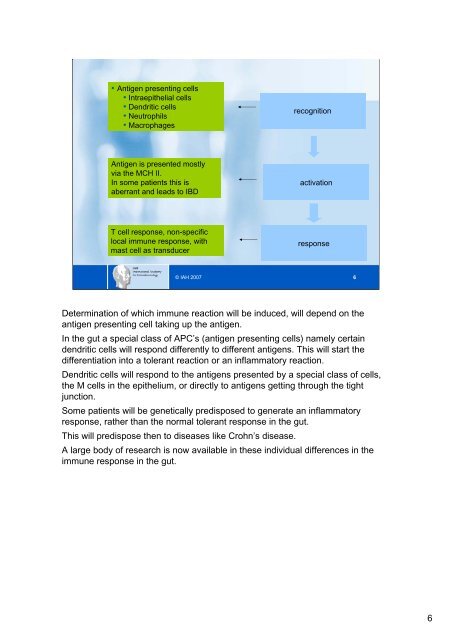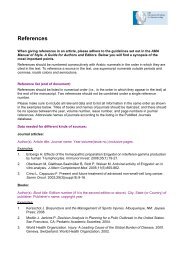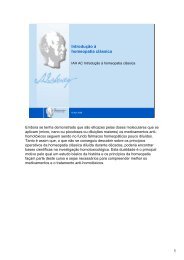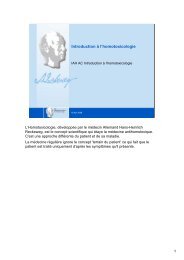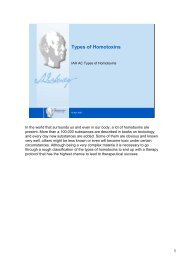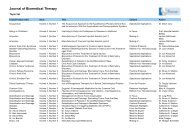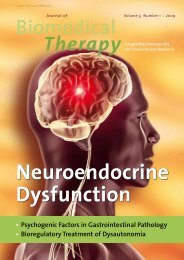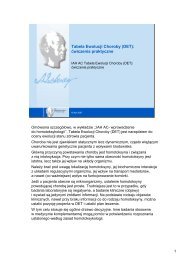IAH AC Gastrointestinal Disease
IAH AC Gastrointestinal Disease
IAH AC Gastrointestinal Disease
Create successful ePaper yourself
Turn your PDF publications into a flip-book with our unique Google optimized e-Paper software.
• Antigen presenting cells<br />
• Intraepithelial cells<br />
• Dendritic cells<br />
• Neutrophils<br />
• Macrophages<br />
recognition<br />
Antigen is presented mostly<br />
via the MCH II.<br />
In some patients this is<br />
aberrant and leads to IBD<br />
activation<br />
T cell response, non-specific<br />
local immune response, with<br />
mast cell as transducer<br />
response<br />
© <strong>IAH</strong> 2007<br />
6<br />
Determination of which immune reaction will be induced, will depend on the<br />
antigen presenting cell taking up the antigen.<br />
In the gut a special class of APC’s (antigen presenting cells) namely certain<br />
dendritic cells will respond differently to different antigens. This will start the<br />
differentiation into a tolerant reaction or an inflammatory reaction.<br />
Dendritic cells will respond to the antigens presented by a special class of cells,<br />
the M cells in the epithelium, or directly to antigens getting through the tight<br />
junction.<br />
Some patients will be genetically predisposed to generate an inflammatory<br />
response, rather than the normal tolerant response in the gut.<br />
This will predispose then to diseases like Crohn’s disease.<br />
A large body of research is now available in these individual differences in the<br />
immune response in the gut.<br />
6


